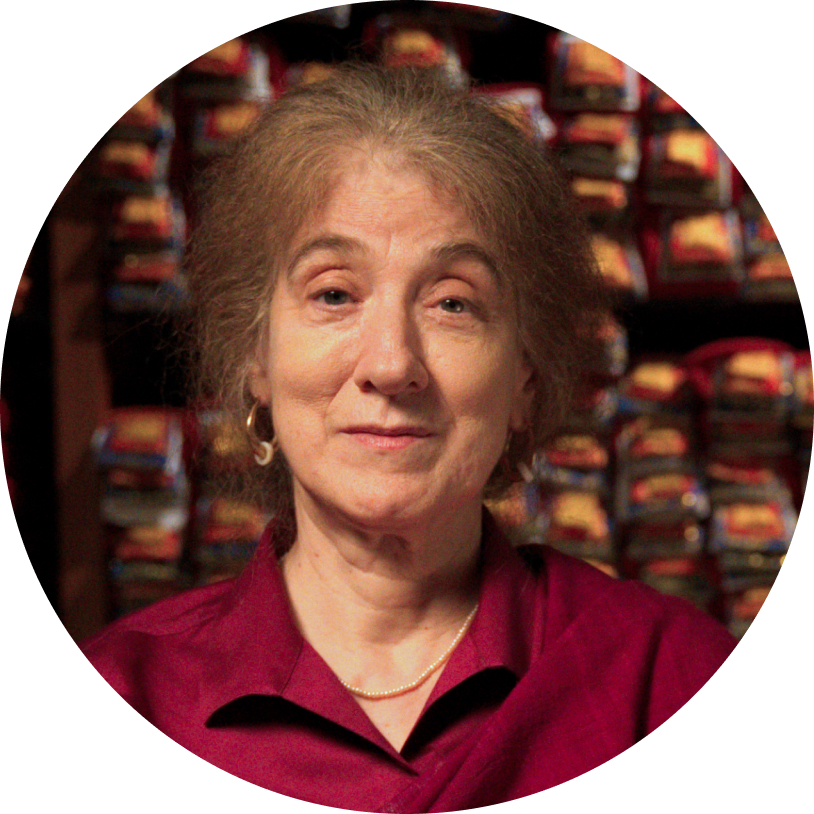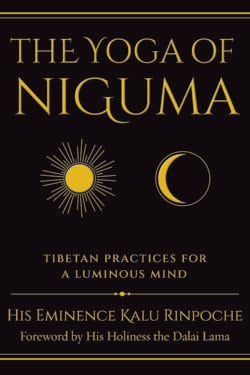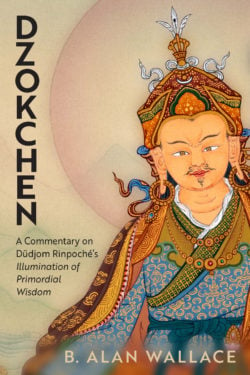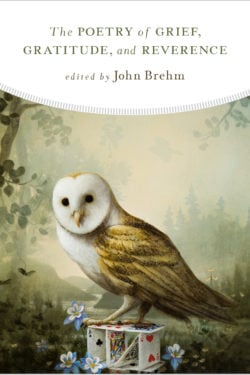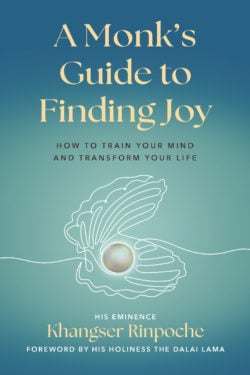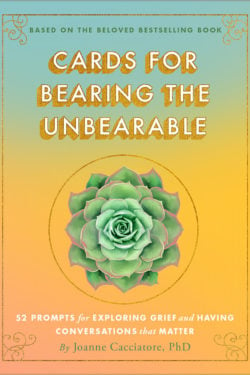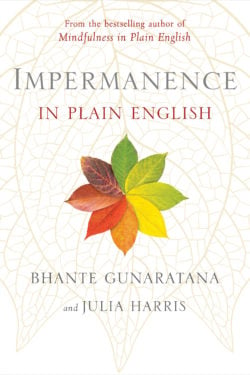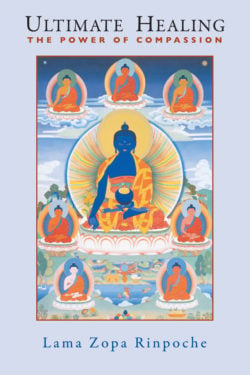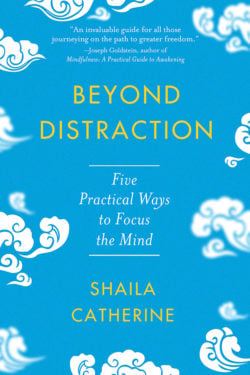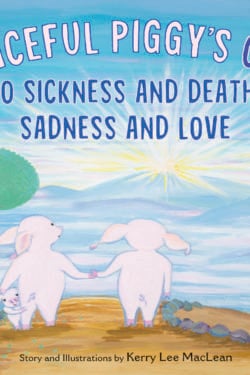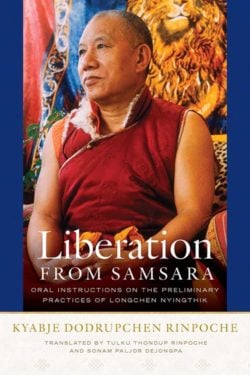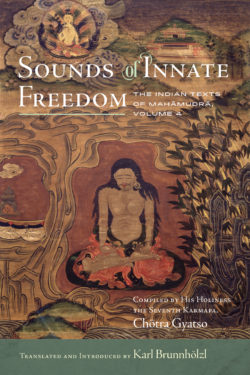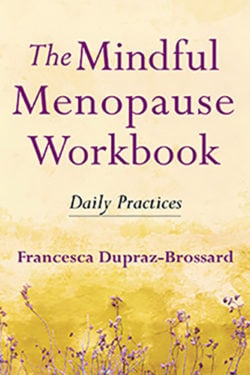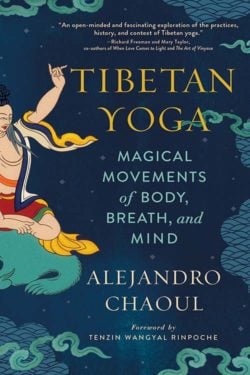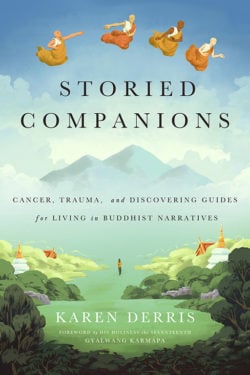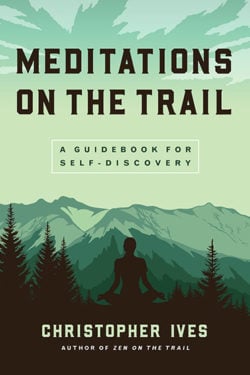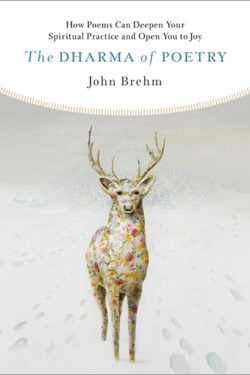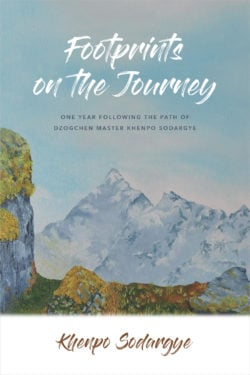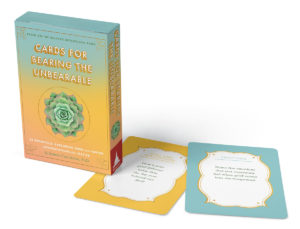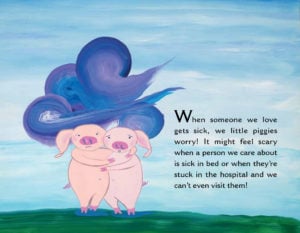Anne C. Klein is a professor and former chair of the religion department at Rice University. She is also a lama in the Nyingma tradition and a founding director and resident teacher of Dawn Mountain, a center for contemplative study and practice in Houston. Her publications include Path to the Middle, Unbounded Wholeness (coauthored with Geshe Tenzin Wangyal Rinpoche), Knowledge and Liberation, Strand of Jewels, and Being Human and a Buddha Too (Wisdom, 2023).
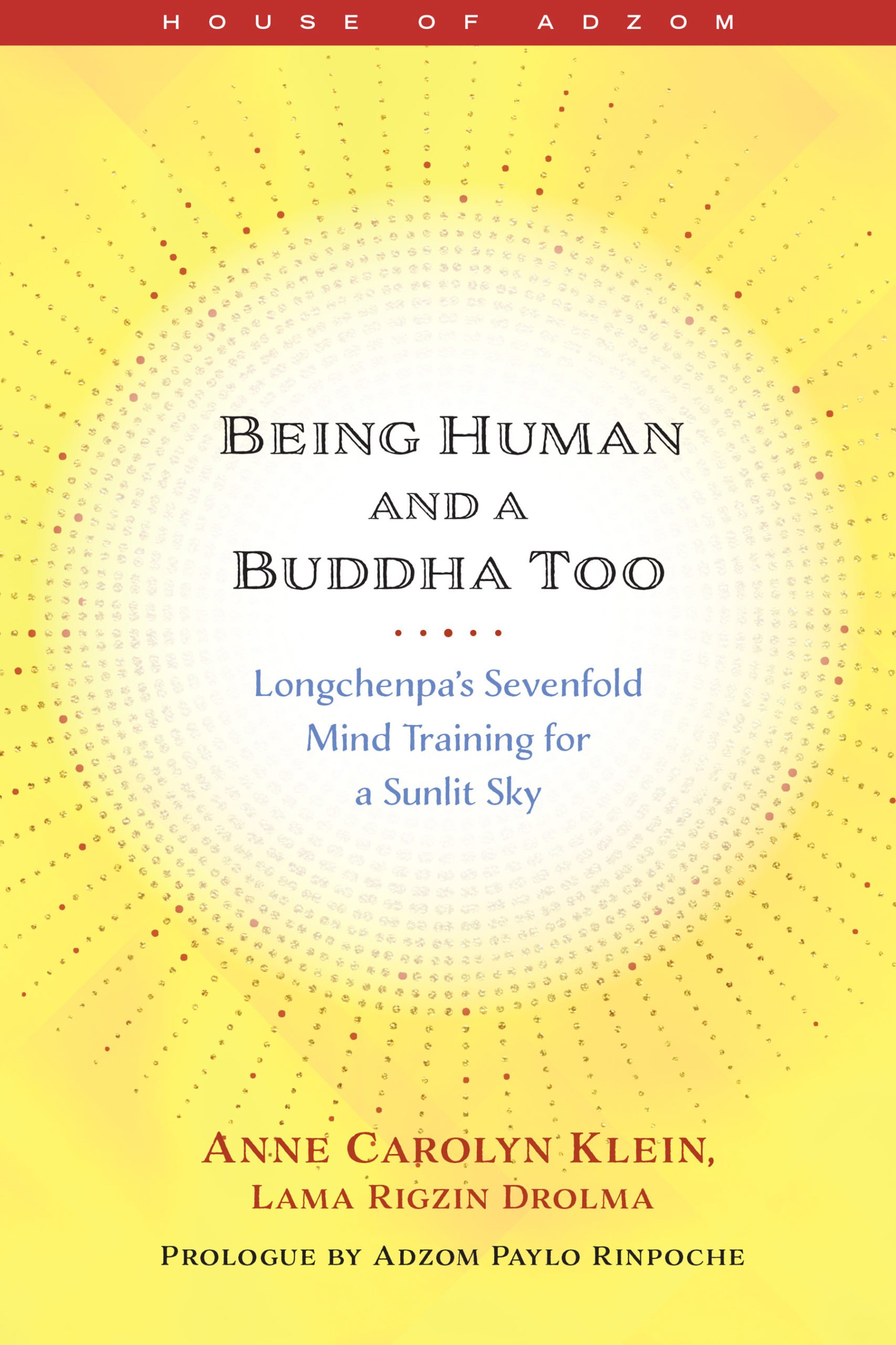
“In fluid and engaging language, Being Human and a Buddha Too brings to the wider international audience a beautiful gem from the Tibetan tradition. Based on Longchenpa’s Sevenfold Mind Training, enriched by Adzom Rinpoche’s commentary, Anne Klein maps out a clear path to our natural state of wholeness. Rarely have I seen such a lucid and compelling account of the seeming paradox of being at the same time human, with all its failings, and a buddha, a fully enlightened being. This is a must for anyone who is interested in Tibetan Buddhism, especially in the key insights of Dzogchen teaching.” —Thupten Jinpa, PhD, author and translator of Essential Mind Training and Mind Training: The Great Collection, founder, Institute of Tibetan Classics, cofounder and chair, Compassion Institute
“Anne Klein, one of this generation’s most accomplished Buddhist scholar-practitioners and Tibetan translators, has done it again. If you are looking for a deep and accessible entry into the path of nonduality in the Buddhist tradition, this is it. Being Human and a Buddha Too gives us a wondrous glimpse into the deepest of all Buddhist teachings, demonstrating that each of us—no matter how flawed—can find the path back to wholeness. Her articulation of the Dzogchen view, emerging from decades of deep study and practice, is simply stunning. Readers, be forewarned . . . it is not an overstatement to say that Anne Klein’s work might wake you up!”—Willa Blythe Baker, founder and spiritual director of Natural Dharma Fellowship, author of The Wakeful Body: Somatic Mindfulness as a Path to Freedom
“Thorough, informative, and written like a narrative from a lifelong friend—Klein weaves theory and storytelling together in a graceful and exciting way. A wonderful collection of ancient voices from India to Tibet, gathered here in the pages to further dissipate the devious myth of separateness.”—Sharon Salzberg, author of Lovingkindness and Real Happiness
“Contains a lifetime of meditation on our deeply human capacity for contemplation, reflections on our brokenness and wholeness, and insights into the vastness and intimacy of our lives. Anne Klein weaves together a rich tapestry of memories of her decade of living with Tibetan teachers, texts, ideas, practices, and inspirations; her own deeply poetic reflections on wholeness and separation; and Tibetan voices from the Great Perfection tradition from Longchenpa to Jigme Lingpa and Adzom Paylo Rinpoche, talking about the pathways that wind through karma and impermanence to wisdom and awakening. In the language of the tradition, this is a book written in the jeweled letters of hard-fought realization and the easy grace that precedes and follows it.”—David Germano, professor of Tibetan Buddhist studies and executive director of the Contemplative Sciences Center at the University of Virginia
“Anyone who has even thought about a practice or whose mind has alighted even once on the paths of buddhas and bodhisattvas will benefit from this book. Read Longchenpa’s fourteenth-century Sevenfold Mind Training in its simplicity, and ordinary experience will become a door to wholeness. Then read the oral commentaries by Adzom Rinpoche and Anne Klein to find elegant insights on Dzogchen. The best of Indian, Tibetan, and Western traditions are strung together in this book—a garland of clear jewels that cannot help but reflect the open sky.”—Laurie Patton, professor of religion and president, Middlebury College, author of Bringing the Gods to Mind and House Crossing: Poems, and translator of The Bhagavad Gita
BEING HUMAN AND A BUDDHA TOO
Longchenpa’s Sevenfold Mind Training for a Sunlit Sky
- Add to Cart Paperback $19.95
- Add to Cart eBook $14.99
In writing that sparkles and inspires, Anne Klein (Lama Rigzin Drolma) shows us how to liberate our buddha nature to be both human and a buddha too.
This first volume in the House of Adzom series centers on Longchenpa’s seven trainings in bodhicitta, our awakened mind, the ultimate purpose of our practice and training. Anne Klein’s original composition masterfully weaves in Adzom Paylo Rinpoche’s commentary and Jigme Lingpa’s five pith practices and commentary on the trainings, in keeping with Longchenpa’s skillful integration of sutra, tantra, and Dzogchen, to resolve our most challenging questions about what awakening involves and how it relates to the truth of our human situation right now. As foundational teachings for Dzogchen practitioners, the seven trainings are framed as contemplations on impermanence, the adventitiousness of happiness and its short duration, the multiple causes of death, the meaninglessness of our worldly activities, reliance on the Buddha’s good qualities, the teacher’s pith instructions, and ultimately nonconceptual meditation on bliss and emptiness, clarity and emptiness, and reality itself.
Discover More
The Yoga of Niguma
Now available! Get 20% off the cover price with code niguma20 until August 5.
Immerse yourself in the extraordinarily transcendent practice of the yoga of Niguma.
The yoga of Niguma comes to us from a secret tradition passed down over hundreds of years by Buddhist yogis in Tibet. The practice originated with the eleventh-century female yogini Niguma, who mastered and transmitted a tradition of remarkable practices that culminate in physical, spiritual, and emotional wellness. In this book, His Eminence Kalu Rinpoche, a Tibetan master who holds this lineage for today’s generation, is now opening up the practice to make its extraordinary benefits accessible to the modern yogi.
The yoga of Niguma consists of twenty-five sets of yogic exercises. Some are physically challenging while others are quite subtle in nature; all are grounded in meditation on the breath. Kalu Rinpoche illuminates the practice by sharing his own personal journey with the yoga of Niguma and how the lineage came to be. He also teaches us how we can prepare the mind for this practice with meditation and how to balance our emotions. Then, Rinpoche takes us step-by-step through the twenty-five illustrated sequences of Niguma yoga. Coauthor Michele Loew, an international yoga teacher, shares supportive Hatha yoga techniques that will bolster your Niguma yoga practice.
The yoga of Niguma is a revered method that integrates body, mind, and breath. Dive in to discover for yourself a gradual, profound groundswell of subtle awakening.
Rinpoche and Michele have recorded two full-length videos that demonstrate Niguma yoga sequences and supportive hatha yoga postures and supplement the instructions in the book. To learn more and watch the videos simply purchase the book and scan the QR code on the Additional Resources page in your copy.
You may also be interested in Rinpoche’s courses from Wisdom, Niguma’s Dream Yoga and The Illusory Body and Mind.
Dzokchen
Dudjom Rinpoche’s classic meditation manual on realizing the Great Perfection, presented and explained by Lama B. Alan Wallace.
In the concise yet comprehensive practice manual entitled Illumination of Primordial Consciousness, the great twentieth-century Tibetan Nyingma master Dudjom Rinpoche lays out a sequential path to spiritual freedom according to the teachings of the Great Perfection (Dzokchen): First, we refine our awareness by training in meditative quiescence (shamatha) and then proceed to the practices of insight meditation (vipashyana), by which our mind’s basic nature of luminosity and emptiness is revealed. Then, having recognized that the ordinary, deluded mind is actually without any intrinsic essence, we are primed to cut through this conditioned mind into unborn, timeless pristine awareness, which has never been contaminated by mental afflictions or other obscurations. Finally, we realize that our own awareness has never been other than the dharmakāya, the mind of a buddha, and perfect enlightenment is realized spontaneously and effortlessly.
Beloved teacher and renowned scholar Lama B. Alan Wallace guides the reader through this remarkable text, which he first translated for his teacher Gyatrul Rinpoche’s book Meditation, Transformation, and Dream Yoga. In this book, Lama shares insights gained over years of study, providing a line-by-line explanation interspersed with background teachings from revered Dzokchen scriptures written by Padmasambhava, Dudjom Lingpa, and others. Also included are a set of fifteen guided meditations given by Lama Wallace, along with links to audio tracks of Lama Wallace giving the instructions himself. Through the practices he describes, the mystery of the mind—its origin and what happens to it at death–is thus illuminated through one’s own meditative experience.
Lama Alan has provided several guided meditations to accompany this book and they can be found here.
The Poetry of Grief, Gratitude, and Reverence
Explorations on a journey through the darkest and brightest moments of our lives, the poems gathered here are explorations of loss, of thanksgiving, of transformation. Some show a path forward and others simply acknowledge and empathize with where we are, but all are celebrations of poetry’s ability to express what seemed otherwise inexpressible, to touch deep inside our hearts—and also pull ourselves out of our selves and into greater connection with the world around us.
Includes poems by
Rainer Maria Rilke, Robert Frost, Elizabeth Bishop, Czesław Miłosz, Seamus Heaney, Billy Collins, Joy Harjo, Danusha Laméris, Ada Limón, Kevin Young, Arthur Sze, Ellen Bass, Li-Young Lee, Natasha Trethewey, and many more, plus the editor’s essay on appreciative attention.
John had recorded guided poetry meditations to accompany several of the poems found in this anthology. To learn more and listen to these meditations, please click here.
Listen to a Wisdom Dharma Chat with John and host Daniel Aitken recorded in October 2023.
A Monk’s Guide to Finding Joy
A profound and practical guide to uncovering your own wise mind and kind heart.
We all want to find happiness. But how do we go about it? In this easygoing and clear-sighted guide, celebrated Buddhist meditation and philosophy master His Eminence Khangser Rinpoche provides us with down-to-earth advice on how to train our minds and find our own innate wisdom and kindness along the way. He helps us see the profound insight that is open to us all, and how it can awaken us to the truth of the way things are. This insight into the truth, and the practices that help you cultivate this awareness, transform suffering into wisdom and compassion—and ultimately joy.
A Monk’s Guide to Finding Joy brings the ancient Tibetan mind-training tradition into our twenty-first-century lives. Through stories, real-life examples, reflections, and meditation practices—all told with warmth and humor—H.E. Khangser Rinpoche shows us how we can transform the suffering of our life into happiness. When we train the mind from within the context of our difficult emotions, we can find true joy, just as the oyster transforms sand into a pearl.
Cards for Bearing the Unbearable
Grief sometimes leaves us without words. Yet narrating our feelings, thoughts, and experiences can be so helpful in relating to our inner world. These cards are an invitation to begin that process.
Impermanence in Plain English
The bestselling author of Mindfulness in Plain English guides the reader toward a direct and personal realization of one of the foundational tenets of Buddhism: all things that arise must pass away.
Once-youthful bodies grow old and weary. New thoughts, feelings, and sensations arise and fade every second. Impermanence is not some abstract metaphysical idea. This is the Dhamma, and you can see it for yourself.
Drawing from Pali scriptures and writing with fresh, direct language, Bhante Gunaratana and his student Julia Harris highlight the Buddha’s exhortation that we must directly realize for ourselves the liberating insights that free us from suffering and cyclic existence, without relying only on the word of religious authorities or academic or philosophical musings.
Ultimate Healing
We experience illness on a physical level, but in order to be healed, we must understand where true healing begins: within our hearts and minds. In Ultimate Healing, internationally renowned meditation master Lama Zopa Rinpoche helps us to recognize the root of illness and gives us the tools to create our future happiness. Beginning with stories of people who have recovered from disease through meditation, Rinpoche addresses the central role played by karma and by the mental habit of “labeling” in causing illness, and shows how meditation and other thought techniques for developing compassion and insight can eliminate the ultimate cause of all disease.
Ultimate Healing shows us that by transforming our minds, especially through the development of compassion, we can eliminate the ultimate cause of all disease. In addition to relating stories of people who have recovered from disease through meditation, Lama Zopa presents practical healing meditations, including white-light healing, compassion meditation, “taking and giving”, and techniques to cure depression.
Beyond Distraction
The mind can be a potent tool, used to guide extraordinary achievements, inspire good works, and incline your spiritual path toward peace and awakening. But the mind can also produce thoughts that lead to suffering. For many people, thoughts run rampant and seem to oppress or control their lives. Even the Buddha tells us that before his enlightenment, he sometimes found his mind preoccupied by thoughts connected with sensual desire, ill will, and harm. But he figured out how to respond to thoughts skillfully and developed a step-by-step approach to calm the restless mind. Now, Insight Meditation teacher Shaila Catherine offers an accessible approach to training the mind that is guided by the Buddha’s pragmatic instructions on removing distracting thoughts. Drawing on two scriptures in the Middle Length Discourses of the Buddha, Shaila shows you how to overcome habitual modes of thinking, develop deeper concentration, and discover the insights into emptiness that are vital for a liberating spiritual path.
Following the Buddha’s pragmatic approach, Shaila guides you through five steps for overcoming distraction and focusing the mind:
- Replace unwholesome thoughts with wholesome thoughts.
- Examine the dangers of distracting thoughts.
- Avoid it, ignore it, forget it.
- Investigate the causes of distraction.
- Apply determination and resolve.
Each chapter includes exercises and reflections to help you cultivate the five steps to deeper concentration. You’ll learn about your mind and develop your ability to direct your attention more skillfully in meditation and daily activities. And ultimately, you’ll discover for yourself how these five steps boil down to one key realization: In the moment you recognize that a thought is just a thought, you will find yourself on the path to a life of remarkable freedom.
A Peaceful Piggy’s Guide to Sickness and Death, Sadness and Love
When someone we love gets sick, we little piggies worry! It can feel scary when a person we care about is sick or in a hospital. Luckily, there is one good thing we peaceful piggies can do: meditate.
This is a story about love.
Experiencing a loved one’s illness or death is challenging for both children and their grownups. With three distinct sections to choose from—when someone we love is sick, dying, or has died—this guide will help you easily find soothing and practical mindfulness activities focused on what your young one needs in order to guide them through their big emotions and questions. These practices will help calm and empower children—and their grownups—as they discover they can still be with their loved ones through their heart connection, no matter where they are.
Click here for an animated video based on the story.
Liberation from Samsara
This rare teaching by Rinpoché is a uniquely concise volume of the teachings of the path to liberation that is authentic, authoritative, and complete.
In Liberation from Samsara, the Fourth Kyabjé Dodrupchen Rinpoché presents the Longchen Nyingthik preliminary teachings, with a special focus on guru yoga. These teachings, from the innermost secret instruction of Dzogchen, constitute a complete path to enlightenment.
After discussing the ways to turn our mind toward Dharma and the trainings, Rinpoché provides guru yoga instruction as he turns to the main tantric practice: meditations on unifying one’s mind with Guru Rinpoché’s wisdom mind. This rare teaching by Rinpoché, though intentionally succinct to accommodate the needs of contemporary Western practitioners, presents a complete path to enlightenment. It contrasts three different paths to liberation: Shravakayana (the way of the disciple), Pratyekabuddhayana (the way of the self-enlightened buddha), and Mahāyāna (the way of the bodhisattva), which is our way, our boundless intention to seek refuge in order to free all sentient beings from samsaric suffering.
Sounds of Innate Freedom, Vol. 4
Sounds of Innate Freedom: The Indian Texts of Mahāmudrā are historic volumes containing many of the first English translations of classic mahamudra literature. The texts and songs in these volumes constitute the large compendium called The Indian Texts of the Mahāmudrā of Definitive Meaning, compiled by the Seventh Karmapa, Chötra Gyatso (1456–1539). The collection offers a brilliant window into the richness of the vast ocean of Indian mahamudra texts cherished in all Tibetan lineages, particularly in the Kagyü tradition, giving us a clear view of the sources of one of the world’s great contemplative traditions.
Besides the individual dohās (couplets), vajragītis (vajra songs), and caryāgītis (conduct songs) in this second volume in publication, the three extensive commentaries it contains brilliantly unravel enigmas and bring clarity not only to the specific songs they comment on but to many other, often cryptic, songs of realization in this collection. These expressive songs of the inexpressible offer readers a feast of profound and powerful pith instructions uttered by numerous male and female mahāsiddhas, yogis, and ḍākinīs, often in the context of ritual gaṇacakras and initially kept in their secret treasury. Displaying a vast range of themes, styles, and metaphors, they all point to the single true nature of the mind—mahāmudrā—in inspiring ways and from different angles, using a dazzling array of skillful means to penetrate the sole vital point of buddhahood being found nowhere but within our own mind. Reading and singing these songs of mystical wonder, bliss, and ecstatic freedom, and contemplating their meaning, will open doors to spiritual experience for us today just as it has for countless practitioners in the past.
Click here to explore other volumes available in The Sounds of Innate Freedom series.
The Mindful Menopause Workbook
The Mindful Menopause Workbook will help you bring mindfulness into your day-to-day activities during menopause. The teachings, exercises, and meditations will show you how to recognize and achieve a more balanced, peaceful, and joyful orientation to whatever you experience at menopause and beyond.
A year’s worth of daily teachings will offer you micro-moments of self-care and self-development—mentally, physically, and spiritually. Following each teaching is space for you to journal whatever thoughts, emotions, or sensations arise. The exercise section includes an illustrated guide to yoga postures and outlines sequential poses that foster greater ease and awareness of the body, while the guided meditations and breath exercises promote body-mind unity through expanded peaceful awareness. The book addresses issues common to women during menopause sensitively and gives recommendations for dealing with common complaints such as insomnia, fatigue, low energy and libido, anxiety, depression, hot flashes, physical discomfort, poor digestion, and weight gain.
Together, these teachings, exercises, and reflections will help you approach menopause mindfully, and joyfully, as you deepen your practice and transition into a new stage of life.
“The Mindful Menopause Workbook is an ideal companion for navigating the transitional tidal waves of feminine growth. It is a great resource to rejuvenate the heart, mind, and body as you step into the next phase of life with renewed hope, confidence, and wisdom. Francesca Dupraz-Brossard has mapped out exciting pathways for women to appreciate and connect with their heart, mind, and body with love, compassion, joy, and equanimity, and to rediscover the beauty of their lives.”
—Dr. Charika Marasinghe, PhD, trustee, Vishva Niketan International Peace Centre
Tibetan Yoga
Discover ancient Tibetan yogic practices that integrate body, breath, and mind on the journey to personal cultivation and enlightenment.
Tibetan Yoga offers accessible instructions for performing the ancient yogic techniques of Tibet’s Bön religion. This is Tibetan yoga, or trul khor, a deeply authentic yogic practice. Drawing on thirty years of training with Bön’s most senior masters as well as advanced academic study, Dr. Alejandro Chaoul offers expert guidance on practices that were first developed by Bön masters over a millennia ago, framing them according to the needs of contemporary yoga practitioners and meditators.
No matter their level of experience, dedicated practitioners of Tibetan yoga will discover their ability to clear away obstacles and give rise to meditative states of mind. In Tibetan Yoga, you’ll learn what it means to practice for the benefit of all beings and to experience your body as a mandala, from center to periphery. These movements help you live in a more interconnected mind-breath-body experience, with benefits including better focus, stress reduction, the elimination of intrusive thoughts, better sleep, and general well-being.
Save 20% on the Tibetan Yoga online course when you buy this book! Your discount code is at the end of the book.
Awake Where You Are
“Embodied awareness is the way back home—intimacy with where and how we are right now, with what is happening and how we are meeting it. This book will lead you into the heart of your life, into your body, where everything happens—with quality of listening rather than knowledge, of feeling rather than reaction. Practicing in this way is radically transformative.”
—Martin Aylward
Pulled around by desires and distractions, we’re so easily disconnected from ourselves. Life is happening right in front of us, and within us—but still, we manage to miss so much of it.
Awake Where You Are provides the antidote, inviting us to go deep into our own bodies, to inhabit our sensory experience carefully; to learn the art of living from the inside out, and in the process to find ease, clarity, and an authentic, unshakeable freedom.
The practices in the book literally bring us back into our skin, where we can reconnect with a more rich, meaningful, and peaceful life. Aylward writes with sophisticated subtlety, as well as the heart-opening simplicity and clarity born of deep experience.
More than a meditation guide, this book is a guide to living an embodied life. You’ll learn about the following areas and practices:
-
- Understanding and liberating our primal human drives.
- Integrating psychological understanding with meditative practice.
- Investigating the nuances of love.
“Martin is a marvelous teacher and offers us the refreshing wisdom of an embodied life.”
—Jack Kornfield, author of No Time Like the Present
Storied Companions
“With my diagnosis of grade IV brain cancer, I no longer observe the truth of impermanence from a critical, analytical distance. I am crashing into it, or it into me.”
Facing a terminal cancer diagnosis, Karen Derris—professor, mother, and Buddhist practitioner—instinctually turned to books. By rereading ancient Buddhist stories with fresh questions and a new purpose in mind, she discovered evolving ways to make them immediate and real. Storied Companions interweaves Karen’s memoir of her lived experiences of trauma and terminal illness with stories from Buddhist literary traditions, sharing with the reader how she found ways to live fully even with the reality that she won’t live as long as she needs—or wants.
Using her knowledge, practice, and imagination, Karen illustrates how placing yourself within narratives can turn them from distant and static sources into companions, and from companions into guides. Reading along with her, you’ll realize how this practice of reading and these ancient narratives can help us come to terms with impermanence, develop empathy and compassion, and realize our own interconnectedness.
Honest, powerful, and insightful, Storied Companions itself becomes an invaluable companion, guiding the reader to discover new ways of facing and experiencing life, death, and impermanence.
Meditations on the Trail
Meditations on the Trail offers a rich array of do-anywhere meditations that will help you explore and deepen your connection to nature, and yourself, in new ways, making the most of your time on the trail.
This small book—perfect for throwing in a daypack or a back pocket as you head out for the trail—is filled with practices to take you into the heart of the natural world and uncover your most vibrant self. You’ll return home grateful, more aware of interconnection, and maybe just a little wiser.
You may also be interested in Chris’s other books, Zen on the Trail, which explores the broad question of how to be outside in a meditative way, and Zen Ecology, in which he reveals a way of living that can help you slow down, stay grounded, and deal with all that is flying at you—and at the same time can help you reduce your ecological impact and engage more effectively with the climate crisis.
The Dharma of Poetry
In The Dharma of Poetry, John Brehm shows how poems can open up new ways of thinking, feeling, and being in the world. Brehm demonstrates the practice of mindfully entering a poem, with an alertness, curiosity, and open-hearted responsiveness very much like the attention we cultivate in meditation. Complete with poetry-related meditations and writing prompts, this collection of lively, elegantly written essays can be read as a standalone book or as a companion to the author’s acclaimed anthology The Poetry of Impermanence, Mindfulness, and Joy.
Listen to a Wisdom Dharma Chat with John and host Daniel Aitken recorded in October 2023.
Footprints on the Journey
This personal diary that the renowned Dzogchen master Khenpo Sodargye kept for one year gives serious Dharma practitioners a lifetime of inspiring, wise guidance for practicing right conduct on the path. The backdrop is the Tibetan plateau, from which Khenpo invites us to see the world—from native people to a spider, from vast galaxies to a water droplet—as he does, with candor and humor, and with a Dzogchen master’s sharp analysis. He shares with us his perceptions of this world, describing his ups and downs in a way that we can relate to and be inspired by, even if we do not have the fortitude to stand up to the oppression of crustaceans or to ransom yaks from the slaughterhouse. Spontaneous and lively, the entries play out the vicissitudes of his life throughout a challenging year, tracking the passage of his thoughts and actions, leaving footprints for whoever is able to follow.
Other books by Khenpo Sodargye include What Makes You So Busy?, Tales for Transforming Adversity, and The Diamond Cutter Sutra.

